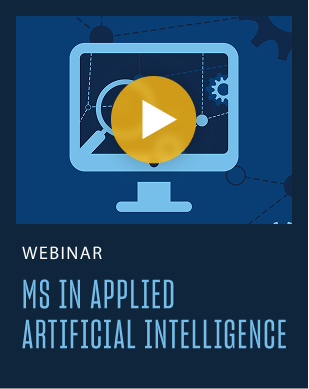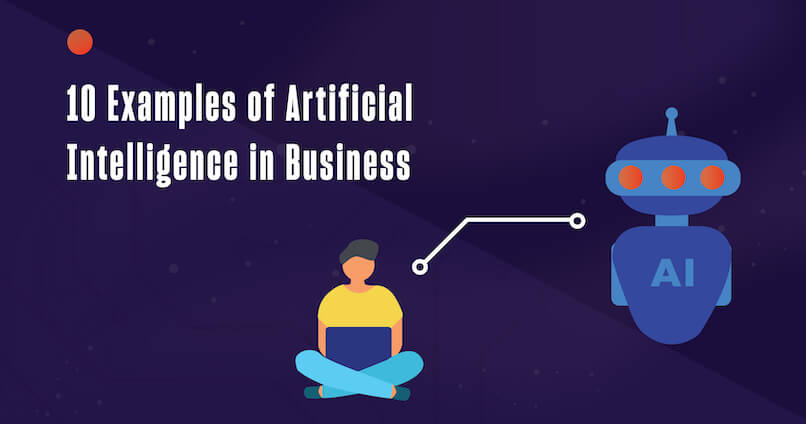Are you interested in a career in machine learning? Looking to jump-start your current machine learning career or take it to a new level? Courses and certification programs are a good way to explore this vitally important subset of the artificial intelligence field. Whether you’re a college graduate interested in high-level concepts or a machine learning (ML) veteran looking to explore a new specialization — this guide will outline some of the top courses and programs in the industry.
Reasons to Take Machine Learning Courses and Certifications
If you don’t have any AI or ML experience and are looking to get your foot in the door, a course or certification is a good first step. These can also help with your overall goals when it comes to advancing your career and investing in professional development. Plus, these types of achievements demonstrate your commitment to learning more about AI and ML, which is a huge plus when reaching out to potential employers.
List of Machine Learning Courses, Certificates & Certifications
This is not an exhaustive list, but here are some popular machine learning courses and certification programs. It’s important to note that these are listed in alphabetical order and are not ranked in any way.
Certifications & Certificates
Certifications may require more of a time commitment than taking a single course. But in some cases, passing the exam is the only requirement for certification. Some are offered exclusively online, while others have hybrid or in-person options.
1. AWS Certified Machine Learning Speciality — Amazon Web Services
Amazon’s certification requires at least two years of experience related to machine learning or deep learning. Choose from an online proctored exam or an in-person testing center. The cost is $300.
2. IBM Machine Learning Professional Certificate — Coursera
This 100% online certification program is labeled intermediate, meaning that some experience is required (specifically Python programming, statistics and linear algebra). Participants will take a total of 6 courses with a suggested time commitment of 3 hours per week (resulting in about 7 months to finish the program). Financial aid is available.
3. Professional Certificate Program in Machine Learning & Artificial Intelligence — Massachusetts Institute of Technology (MIT)
This certification is designed for professionals with a minimum of three years of experience. Requirements include at least 16 days of qualifying courses, in addition to a bachelor’s degree in a technical area. There is a non-refundable application fee of $325.
4. Professional Machine Learning Engineer — Google
This program, which is part of Google’s Learning & Certification Hub, will assess your ML-related knowledge and capabilities. You can take the 2-hour exam remotely (online proctored) or at a nearby testing center. There are no prerequisites, but it’s recommended that you have at least three years of experience (include at least one year of working with Google Cloud). The registration fee is $200.
5. Deep Learning Specialization — DeepLearning.AI and Coursera
This intermediate certification specialization consists of five online courses. Participants will learn about artificial neural networks, deep learning, Python programming, inductive transfer and more. Financial aid is available.
6. Tiny Machine Learning (TinyML) — Harvard University
As the course description explains, “TinyML is a cutting-edge field that brings the transformative power of machine learning (ML) to the performance- and power-constrained domain of tiny devices and embedded systems.” The three courses in this self-paced program address TinyML fundamentals, applications and deployment. The time commitment averages 2–4 hours per week for a total of 4 months. The cost is $597, but the program may be discounted depending on when you apply.
Courses
Machine learning courses may be less of a time commitment, and in some cases, less expensive. These courses are listed in alphabetical order and are not ranked in any way.
7. Data Science: Machine Learning — EdX and Harvard University
This introductory, self-paced course will teach you the basics of machine learning. The cost of $99 comes with unlimited access to the course materials and graded assignments and exams. You can also audit the course for free, but your access to the materials is limited and you will not receive a certification upon completion.
8. Introduction to Machine Learning for Coders — Fast.ai
This course includes about 24 hours of lessons, which students can view for free at their own pace. Even though there is no cost, it’s assumed you will have at least one year of experience in coding and some high school math.
Watch Now: Explore AI Career Opportunities with USD’s Master’s in Artificial Intelligence Webinar
9. Introduction to Machine Learning Problem Framing — Google Developers
Discover how to frame machine learning problems and come up with relevant solutions in this free, 1-hour course.
10. Intro to TensorFlow for Deep Learning — Udacity
Developed as “a practical approach to deep learning for software developers,” this immediate-level course includes interactive quizzes and self-paced learning. The course is free and takes approximately 2 months to complete.
11. Machine Learning Crash Course — Google Developers
Billed as “Google’s fast-paced, practical introduction to machine learning,” this 100% online course features videos, case studies, exercises and examples of real-world algorithms. The course is free.
12. Supervised Machine Learning: Regression and Classification — Stanford University and Coursera
This 100% online, self-paced course takes approximately 33 hours to complete. Students will learn about machine learning in general but also logistic regression, artificial neural networks and ML algorithms. Financial aid is available.
13. Machine Learning with Python — IBM and Coursera
Students in this course will learn about real-world applications of machine learning, in addition to a variety of related topics, such as model evaluation and algorithms. The intermediate-level course is flexible and 100% online. It is also part of the IBM AI Engineering Professional Certificate and IBM Data Science Professional Certificate programs.
14. Testing and Debugging in Machine Learning — Google Developers
Learn about data and model debugging, model metrics and model optimization in this free, 4-hour course. Prior ML and basic Python programming knowledge is required.
15. The School of Artificial Intelligence — Udacity
If you’re looking for options, consider Udacity’s program offerings, which include a variety of different courses and nanodegree programs. These include:
- Machine Learning Engineer for Microsoft Azure
- Intro to Machine Learning with TensorFlow
- Intro to Machine Learning with PyTorch
- Machine Learning DevOps Engineer
- AWS Machine Learning Engineer
- AI for Healthcare
- Natural Language Processing
16. Machine Learning Courses — Udemy
This is also a good option if you want variety. Courses are as low as $14.99 for a limited time. Popular ones include:
- Machine Learning, Data Science and Deep Learning with Python
- Introduction to Machine Learning for Data Science
- Scala and Spark for Big Data and Machine Learning
- The Complete Machine Learning Course with Python
List of Machine Learning Topics Taught in Courses (Sampling)
The exact content of a course will depend on a variety of factors, including whether it is beginning, intermediate or advanced. Courses that are more introductory and entry-level may cover a variety of topics, whereas advanced courses are typically more specialized. Here is a sample of topics that you will find in many machine learning courses:
- Machine learning concepts and techniques
- Machine learning models
- How machine learning differs from traditional programming
- Advanced algorithms
- Statistical modeling
- Supervised vs. unsupervised learning
- Neural networks
- Artificial neural networks
- Deep learning
The good news — if there’s a sub-topic of machine learning you’re interested in, there’s likely a course or two that can provide you with more information. This is especially valuable if you’re looking to gain experience in a particular area.
Where Is ML Being Used Today?
Machine learning is everywhere — whether we realize it or not. From chatbots and virtual assistants to online fraud detection and personalized recommendations, machine learning touches practically every industry. Here are some real-world examples of machine learning:
- Facial recognition
- Product recommendations (Amazon, Netflix, etc.)
- Spam filtering in email
- Mobile bank deposits
- Social media content suggestions
- Voice-to-text
How to Choose the Right ML Course
There are several factors to consider when it comes to ML courses and certification programs. Here are some questions you should keep in mind:
- Does the course align with your career goals?
- How much does the course or program cost?
- How much time will it take?
- How flexible is the course? (Is it self-paced, or are there set dates and times?)
- Is the course online or in person?
It’s important to do your research. Read online reviews and if possible, talk to professionals who have previously taken the course or undergone the certification program. Was it worth it?
We also recommend assessing programs based on your current skills and knowledge to ensure you are taking a course or certification program that is appropriate for your experience level.
Frequently Asked Questions
Let’s Talk About Your Machine Learning Career
Whether you’re considering an ML course or certification or looking for alternative educational options to advance your machine learning career, we invite you to take a look at the University of San Diego’s Master of Science in Applied Artificial Intelligence program.
Designed to prepare graduates for success in this vitally important and fast-growing field, this online artificial intelligence master’s degree program has been developed by AI experts in close collaboration with key industry and government stakeholders to provide in-depth practical and technical training. Please contact us today with any questions or to request more information.




